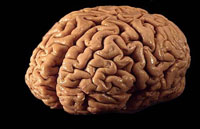People can easily erase bad memories, new research says
People can learn to suppress their emotional memories if they practice it, a recent research reveals. A group of researchers at the University of Colorado conducted a special experiment with 16 individuals to see if they could actively suppress their own memories.

The researchers asked the subjects to memorize 40 pairs of different pictures which provoked emotional reactions with people. Afterwards, the subjects were shown the pictures again. A researcher asked them to either remember or forget specific pictures. The scientists were simultaneously scanning the subjects’ brains to see which brain areas became active when the people were told to remember or forget an image. Finally the individuals were shown one picture from each of the pairs to see if they remembered its mate.
As a result, the researchers found that the subjects had much better memories of the pictures they were told to remember than of those they were asked to forget, ABC News says.
"You're shutting down parts of the brain that are responsible for supporting memories," said Brendan Depue, a neuroscience doctoral student at the University of Colorado who worked on the study. “ You can train yourself to remember something, and you can train yourself to forget it," he said.
The authors of the research said they hope that their work will promote further research into better therapies and possibly even drug treatments for people suffering from conditions such as PTSD, phobias, and obsessive-compulsive syndrome. The symptoms of these disorders include flashbacks to disturbing events, and intrusive or obsessive thoughts.
The study is the first to show people can teach themselves to ward off gruesome visual thoughts and memories, Bloomberg says. The researchers speculated that treatments that increase activity in the brain's frontal cortex and hippocampus, areas activated in the study, might help PTSD patients. This could include use of the chemical dopamine, known to regulate the flow of information in the memory, attention and problem-solving areas of the brain.
Source: agencies
Subscribe to Pravda.Ru Telegram channel, Facebook, RSS!





